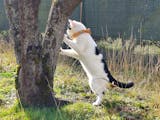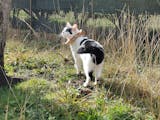The world is teeming with a myriad of wildlife, each playing a pivotal role in maintaining ecological balance. Amongst them, songbirds are often found in distress, necessitating immediate attention and care. This article discusses the significant work of wildlife rehabilitators and how you can extend a helping hand, inspired by resources available on Birdsbesafe's page on Wildlife Rehab and Songbirds.
The Role of Wildlife Rehabilitators
Wildlife rehabilitators are the unsung heroes striving to restore the health and vigor of injured, sick, or orphaned wild animals. Operating often as volunteers or non-profit organizations, their goal is to release rehabilitated animals back to their natural habitats, thus maintaining ecological harmony. They are known for their unwavering dedication and passion for animal welfare.
Addressing the Needs of Songbirds
Songbirds often face threats such as loss of habitat, disease, or injury. In such scenarios, wildlife rehabilitators act promptly, providing medical care and nurturing them back to health. They work tirelessly to aid these feathered friends, addressing their unique needs and preparing them for a life back in the wild.
How to Contribute
Every individual can play a part in supporting these rehabilitation efforts. One can start by learning about local wildlife rehabilitators and understanding the type of help they require. Volunteer opportunities may be available for those willing to invest their time and energy. Furthermore, spreading awareness about the plight of songbirds and other wildlife is crucial. By enlightening communities, we can collectively contribute to the conservation of our precious wildlife.
Birdsbesafe has been honored to be well received by wildlife rehabilitators from our own corner of Vermont to Connecticut to California and Oregon and beyond. You can read a wonderful testimonial about Birdsbesafe® by Pacific Wildlife Care.
If you want to learn a little bit more about wildlife rehabilitation and their organizations, you can find many links and information here at the "wildlife rehab info" website.
Key Resources
Several online resources provide detailed information and directories to connect with local wildlife rehabilitators. For instance, The Humane Society offers a comprehensive listing of wildlife rehabilitation centers, aiding in finding the right contact when encountering a distressed wild animal[3]. Los Angeles Audubon Society offers resources and tips on dealing with found nestlings and the steps to ensure their safety[1].
Final Thoughts
Wildlife rehabilitators hold the mantle in conserving and protecting songbirds and other wildlife. Their relentless work ensures the well-being of the countless species that share the planet with us. It's our collective responsibility to support them and to contribute to creating a harmonious environment where every creature can thrive.
🌐 Sources














